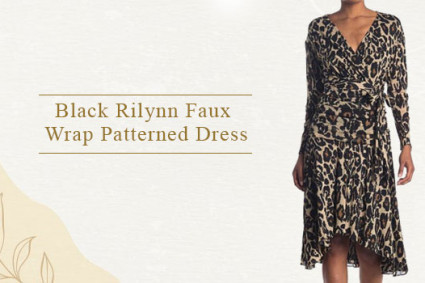In the realm of women's fashion, the choice of casual wear and fashion accessories is not merely a matter of aesthetics; it reflects individuality, cultural influences, and personal comfort. When curating a wardrobe, it's important to consider a myriad of factors to strike the right balance between style, functionality, and impact on the environment.
The Crucial Elements of Women's Casual Wear
Comfort: The foundation of any casual outfit is comfort. Fabrics like cotton, denim, and jersey provide ease of movement and breathability. However, the fashion industry has seen a surge in sustainable materials such as organic cotton, Tencel, and bamboo, offering both comfort and eco-consciousness.
Style: While comfort is key, style should not be compromised. Casual wear allows for self-expression through patterns, colors, and silhouettes. From classic tees and jeans to versatile jumpsuits, the range of choices is vast. The challenge lies in finding pieces that resonate with personal taste while keeping up with ever-changing fashion trends.
Durability: A well-constructed garment or accessory can withstand the test of time. Investing in high-quality pieces might come with a higher upfront cost, but it can save money and resources in the long run. Balancing cost and durability is essential, as a wardrobe that lasts longer reduces the need for frequent replacements.
Sustainability: In recent years, the fashion industry's impact on the environment has come under scrutiny. Sustainable casual wear focuses on eco-friendly materials, ethical manufacturing processes, and reduced carbon footprints. Brands are increasingly adopting practices that prioritize both style and the planet.
Fashion Accessories That Elevate
Bags: From totes to crossbody bags, the right accessory can tie an outfit together. Factors to consider include size, functionality, and material. Vegan leather and recycled materials have gained popularity due to their lesser environmental impact.
Jewelry: Accessories like earrings, necklaces, and bracelets add a personal touch. Balancing metals, stones, and designs can elevate an outfit. Choosing between genuine and lab-created gemstones involves understanding the ethical and environmental implications of both options.
Footwear: Shoes are more than just functional; they're a style statement. Comfort, support, and style intersect here. Brands are experimenting with sustainable materials and ergonomic designs, catering to both fashion preferences and long-term foot health.
Headwear: Hats not only offer protection from the elements but also accentuate an ensemble. From sun hats to beanies, the choice depends on the occasion, season, and personal style.
Trade-offs and Challenges
Finding the perfect women's casual wear and fashion accessories often involves navigating trade-offs. The balance between style and comfort can be delicate. A beautiful dress might sacrifice comfort, while an extremely comfortable outfit might lack the desired visual impact. Similarly, affordability versus durability is a common dilemma. A cheaper item might wear out faster, leading to higher consumption and potentially more environmental strain.
The challenge of sustainability is prevalent across both clothing and accessories. While some brands champion eco-friendliness, others struggle to adopt sustainable practices due to cost implications. Consumers must weigh their desire for ethically-made products against their budgetary constraints.
Considering the Impact
The impact of consumer choices in women's casual wear and fashion accessories goes beyond personal preference. The fashion industry contributes to pollution, waste, and unethical labor practices. By supporting brands that prioritize sustainability and ethical production, consumers can drive positive change.
Conclusion
The world of women's casual wear and fashion accessories is multifaceted. It encompasses comfort, style, durability, and sustainability, each factor influencing the other. Striking the right balance requires thoughtful consideration of personal preferences, budget constraints, and ethical concerns. With a growing emphasis on sustainability, consumers hold the power to reshape the industry's practices through their choices. By supporting brands that align with their values, individuals can not only create a stylish wardrobe but also contribute to a more responsible and sustainable fashion ecosystem.




